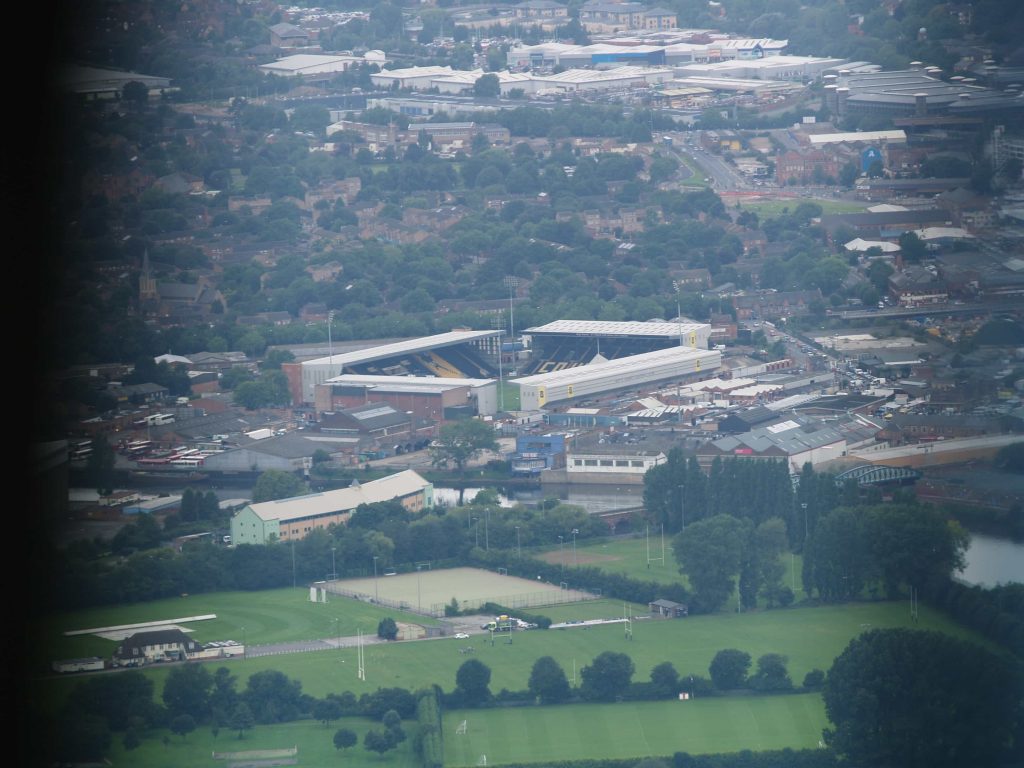Ownership of football in England needs fixing. Notts County and Nottingham Forest are prime examples.
Financial troubles are rife in the lower leagues of English football. Notts County are one of the many clubs to have suffered.
Amidst their current financial crisis, for the first time in their 157 year history, the world’s oldest professional club also faces relegation from the Football League.
A winding-up order for the club has, for now, been postponed until current owner Alan Hardy sells up.
There are some potential new owners – still a mystery to those outside the club – who are, according to Hardy, a “very credible party” and “have Notts County’s best interests at heart”.
A mystery take-over, by an unknown consortium, will feel all too familiar to County fans.
In 2009, during yet another financial crises at the club, a group by the name of Munto Finance purchased the club for a pound.
It looked great at first for the Magpies. Sven-Goran Eriksson came in as director of football and Kasper Schmeichel signed from Manchester City. They even signed Sol Campbell.
Things soon began to crack after Campbell signed. He played one game and left. Murmurings of false promises and huge debts began to surface.
By Christmas of 2009 it had all fallen apart. The club had racked up millions in debt and in a desperate bid to stay afloat the club was, yet again, sold for a pound.
Later, in a BBC Panaroma investigation called ‘The trillion dollar conman’, it was revealed that the Magpies were conned.
Munto Finance and its parent company Qadak Investments were, in fact, a front for a conman called Russell Stephen King.
King, Notts fans will be glad to know, was finally extradited to Jersey in July 2018 after nearly a decade on the run.
King proved one thing. The ability to acquire a football club, particularly in dire circumstances, is all too easy.

When Hardy took over, the club was subject to a winding-up order, yet, he still promised Championship football.
Last month he said that he was seduced by the dream of owning the club he supports.
Hardy, unquestionably, had the best intentions for the club. His ownership has ultimately ended where it began. With a club in financial crisis.
Something clearly needs to change. Tighter regulations and rules need to be introduced by the FA and leagues to stop the financial slide of clubs.
It seems that if you can wave a blank check around, in the direction of certain people, anyone can acquire a club.
You only need look across the river Trent at Nottingham Forest. The club was bought by Greek shipping magnet Evangelos Marinakis in 2017.
Marinakis was subject to drug-trafficking charges in Greece at the time of his take-over. The EFL still cleared his ownership.
The EFL’s ‘owners and directors’ test only recognises convictions from other parts of the world ‘that results in a sentence of at least 12 months’ imprisonment’. This includes suspended sentences if they are made active.
If someone has engaged in an offence outside England and Wales, that would have likely resulted in an unspent conviction here, the EFL can reject them. Even if they were not convicted.
There is no mention of the words ‘wanted’, ‘allegations’, ‘questioning’ or ‘charges’ anywhere in the document.
Of course, our justice system operates an ‘innocent until proven guilty’ modus operandi. The issue is that we are letting dodgy, potentially criminal, owners run our clubs.
The last thing County fans would want, after a potential relegation, is a repeat of the Munto Finance fiasco.
The new owners must, also, be more realistic in their ambitions than the previous regimes. Particularly if the Magpies lose their Football League status.
Switching from full-time to part-time is not an easy transition. It requires good management, experience and, importantly, planning.
The best thing the Magpies can hope for is an owner with previous experience of running a football club. Football may just be a game to some. Owning a club is far from it.
Notts’ next five fixtures are away to Crewe, then a home tie with promotion chasing Milton Keynes, a trip to fellow strugglers Crawley, their last home match against Grimsby and their final game of the season at Swindon.
Let’s hope the world’s oldest professional club can survive as a League Club. At least for another year.